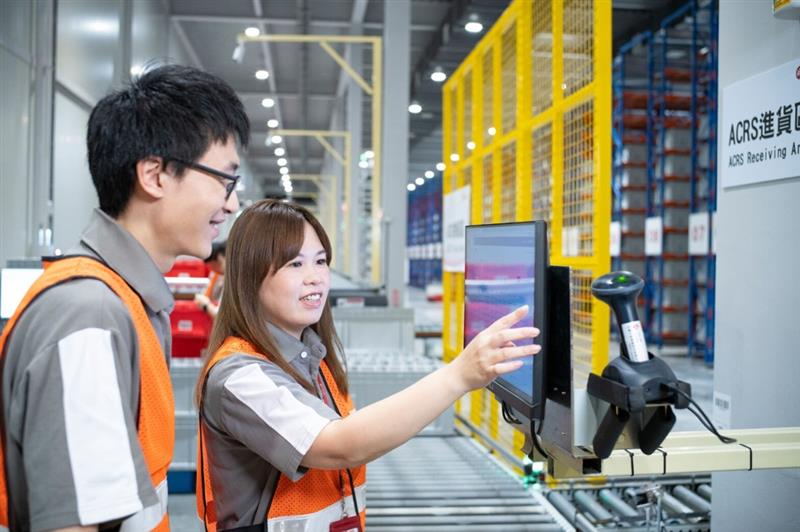Amid inflationary pressures, changing consumer behavior, and rising sustainability awareness, Supply Chain Management (SCM) has evolved from a logistical function into a core driver of business strategy. Companies no longer see SCM merely as a cost-control tool. Instead, they are adopting automation and smart technologies to improve visibility and process efficiency, turning it into a key driver of pricing strategy, customer experience, and service flexibility (KPMG, 2025). Today, SCM plays a critical role in driving business growth and organizational resilience.

DKSH Taiwan’s SCM team embodies this transformative trend. Over the past three years, the team has advanced digitalization, automation, and process optimization. Through cultural change and cross-functional collaboration, they have evolved from logistics executors into strategic partners, supporting business growth, enhancing customer engagement, and creating value.
To explore the context and impact of this transformation, we interviewed Lillian Chang, General Manager of Supply Chain Management, DKSH Taiwan. She shares how the team has become a trusted growth enabler for Business Units, delivering operational excellence and advancing sustainability objectives through actions.

In recent years, the SCM team has optimized processes and implemented digital tools. Beyond technical improvements, what other impacts has this transformation achieved?
Lillian: Transformation goes beyond tool upgrades and represents a reshaping of value. The team’s role has evolved from logistics execution to a growth partner that helps Business Units launch products and strengthen customer engagement. This shift also involves cultural change and talent development. Team members have evolved from operational roles into professionals who leverage data and technology to propose solutions and drive operational impact. SCM is no longer just an operational support function but an active contributor to business expansion and customer engagement.
In driving multiple transformation initiatives, what practices or qualities have enabled the team to deliver tangible results?
Lillian: To make SCM a growth engine, the key lies in the team’s culture and approach to collaboration. We emphasize working alongside Business Units and customers, engaging from early market strategy to back-end service optimization with a value-driven mindset. We also foster an open attitude toward cross-functional collaboration, combining diverse expertise and perspectives to tackle challenges together. This culture ensures that we do more than complete tasks; we also drive change and create greater value.
What is the team’s greatest differentiating advantage in the Taiwan market?
Lillian: The team’s greatest advantages are clear:
• Highly automated warehousing facilities with precise, digitalized processes ensure both efficiency and quality
• An extensive and responsive distribution network meets the needs of diverse channels quickly and reliably
What stands out most is the team itself, with resilience, dedication, and proactive spirit. In Healthcare, our specialized ENDO team is on standby 24/7, ensuring critical cardiac catheter supplies reach designated hospitals within hours to save lives. In Consumer Goods, our distribution operates uninterrupted even during heavy storms or typhoons, delivering products on time to retail and foodservice channels so consumers can access fresh meals regardless of the weather.
These achievements reflect more than systems and processes, as they result from a team with strong commitment and accountability.
How does the mission “Delivering Value, Always” guide the supply chain team’s development?
Lillian: It is a guiding principle practiced every day by our team. The term Value covers three dimensions:
1. People: emphasizing talent development and continuous training to enhance team expertise and adaptability
2. Growth: reflecting the drive to improve operational efficiency and team momentum, positioning SCM as a reliable partner in our customers’ growth journey
3. Operational Excellence: focusing on streamlined operations and process optimization to establish a sustainable and scalable supply chain foundation
Through this approach, SCM aims to be customers’ preferred partner, providing stable support while responding to challenges with innovation and agility, driving sustainability and industry advancement.

Sources:
• KPMG: Six Supply Chain Trends to Watch in 2025